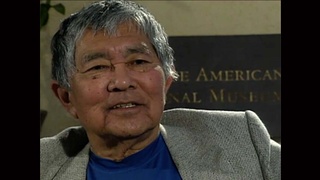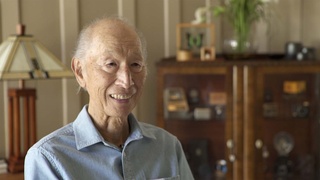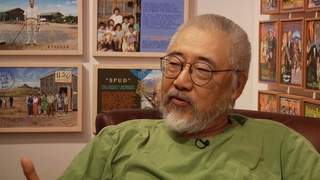Interviews
Institutionalization as a bad aspect of camp
I think the lack of privacy was such a big thing. You couldn’t get away to have any kind of privacy. That does something. It was such a controlled community that way. And when you don’t have your own space, it does something to you, I think. It was a good thing that it did not last much longer, because as one of the fellows said in the testimony before the Commission [on Wartime Relocation and Internment of Civilians], that even if it [the incarceration] was three or four years, people got used to being institutionalized, being taken care of. And it was showing signs of lack of discipline, lack of initiative on the part of people. And especially Issei, who had lost everything, anyway. They had no initiative to go and start life anew and it got harder [as they remained in the camps], so they were so much fearful when it was announced that the camps would close. They were afraid to go out. And this institutionalization was a bad aspect of the camps.
Date: August 26, 1998
Location: Virginia, US
Interviewer: Darcie Iki, Mitchell Maki
Contributed by: Watase Media Arts Center, Japanese American National Museum








